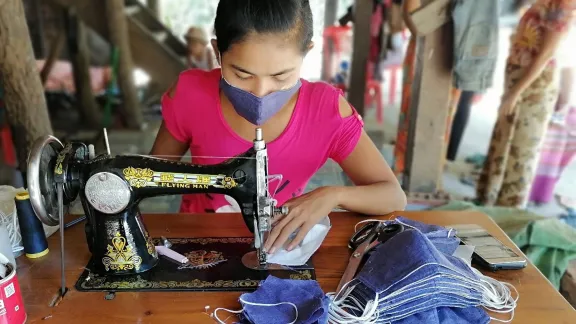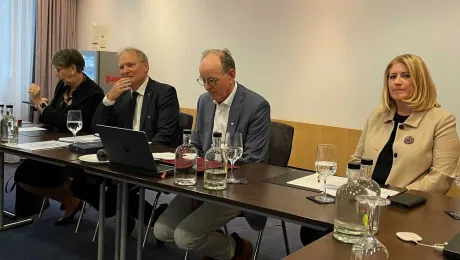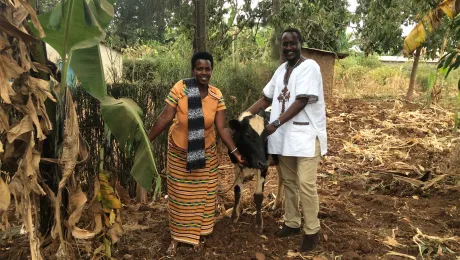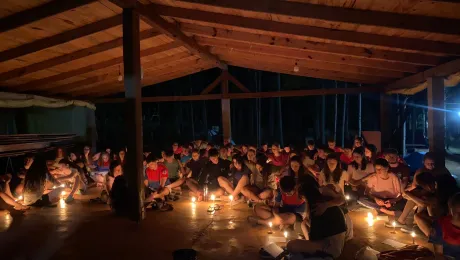
A woman entrepreneur sews cloth face masks in Kyauk Tan Gyi village, Sittwe Township, Rakhine State, Myanmar. Photo: LWF/Nu Nu Aye
Rapid Response Fund grants will increase to EUR 10,000 per project
(LWI) – The Lutheran World Federation (LWF) is shifting its COVID-19 Rapid Response Fund (RRF) from the current short-term emergency framework to focus more on recovery and livelihood projects. The objective is to address the long-lasting social and economic effects of the coronavirus pandemic on churches and the communities they serve.
In a letter addressed to the communion’s member churches, Ms Eva Christina Nilsson, director of the LWF Department for Theology, Mission and Justice said the new RRF approach is driven by churches’ experience of “the deepening of previously existing injustices on marginalized population groups especially in countries with weaker economies.”
The new RRF approach is driven by churches’ experience of the deepening of previously existing injustices on marginalized population groups especially in countries with weaker economies.
LWF member churches in Africa, Asia, Central Eastern Europe and Latin America and the Caribbean have provided immediate relief activities such as distribution of food packages, medical assistance and hygiene kits through two RRF phases since the fund was launched in April 2020. The longer-term focus will help churches rebuild livelihoods that have been decimated and address the pandemic’s impact on specific groups such as youth, survivors of domestic violence, migrant workers and daily-wage workers.
Recovery and livelihoods’ projects can include skills training, seed funding for small-scale businesses, back-to-school initiatives and community food gardens. Response to urgent basic needs will still be considered in contexts where it is not yet feasible for churches to shift into recovery and livelihoods initiatives.
A maximum of EUR 10,000 per project
In the new framework, the maximum amount per project has been doubled to EUR 10,000. This will allow churches to engage in recovery and livelihood initiatives that are likely to cost more per recipient than the initiatives in previous phases of the RRF, which included small-scale food distribution, hygiene awareness, and support for online communication.
Guided by LWF’s mission to “leave no one behind,” the Communion Office will ensure that all interested churches can take part in the RRF grant application process, including those who have difficulties accessing information online.
Since its launching at the beginning of the COVID-19 pandemic, the Rapid Response Fund has supported more than 100 member church projects amounting to a total of EUR 550,000. Continuous effort is made to coordinate with other LWF partners funding similar COVID-19 related requests in order to avoid duplication and ensure fairness.
By LWF/P. Mumia
The LWF launched the LWF COVID-19 Rapid Response Fund in April 2020, with the goal to support the communion’s member churches, particularly the most vulnerable ones that require urgent assistance during the global health emergency. The fund is supported by LWF’s member churches and partners around the world.


